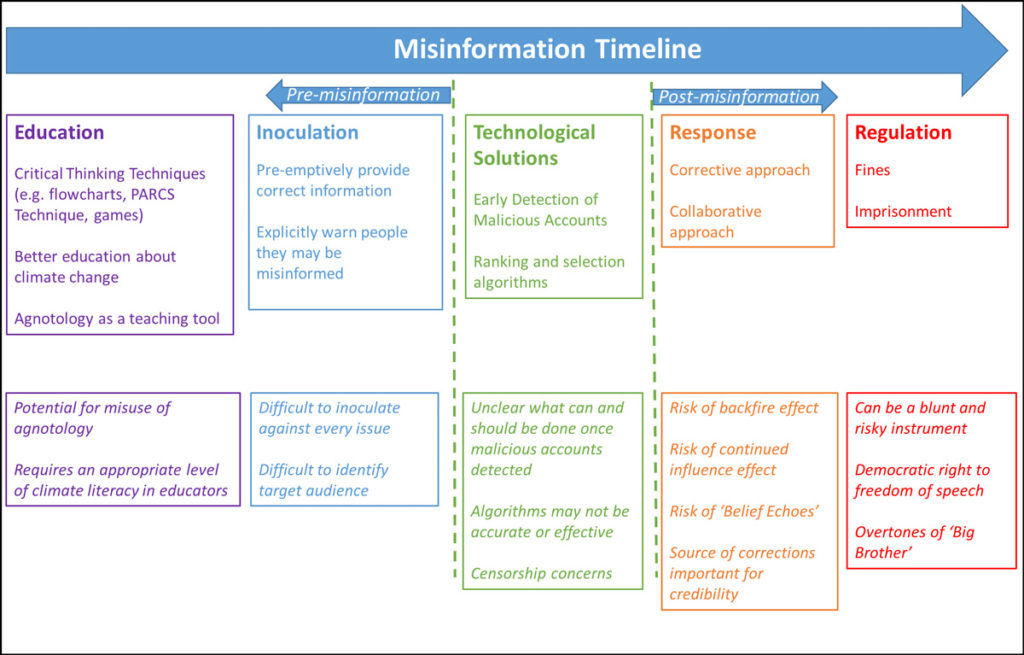Following The End Of A School Desegregation Order: Future Challenges

Table of Contents
The Risk of Re-segregation
The alarming trend of schools returning to a more segregated state after desegregation orders end is a significant concern. The dismantling of legally mandated integration efforts often leaves behind deeply ingrained inequalities that fuel re-segregation. This requires a multifaceted approach to address and mitigate the underlying causes.
Residential Segregation's Impact
Housing patterns and socioeconomic disparities are deeply intertwined with school segregation. The legacy of discriminatory housing practices like redlining continues to shape residential segregation, creating geographically isolated communities that often translate into racially and economically homogenous schools.
- Correlation between housing and school segregation: Studies consistently demonstrate a strong correlation between residential segregation and school segregation. Neighborhoods with concentrated poverty often correspond to under-resourced schools.
- Impact of redlining and other discriminatory housing practices: Redlining and other discriminatory housing policies created and perpetuated residential segregation, leaving lasting effects on school demographics and resource allocation.
- Challenges of creating truly integrated school districts: Creating truly integrated school districts in geographically segregated communities requires innovative and comprehensive strategies, often involving busing, magnet schools, and affordable housing initiatives.
The Role of School Choice Policies
School choice programs, while intending to empower families, can unintentionally exacerbate existing inequalities and lead to increased segregation if not carefully designed and implemented.
- Self-selection by race and socioeconomic status: School choice can lead to self-selection, with families choosing schools based on perceived quality and peer groups, often resulting in schools that are racially and economically homogenous.
- Impact of magnet schools and charter schools on integration efforts: While magnet schools and charter schools can sometimes promote diversity, they can also inadvertently contribute to segregation if not strategically located and designed to attract a diverse student body.
- Role of transportation limitations in access to diverse schools: Transportation limitations can significantly restrict access to diverse schools, particularly for students from low-income families who may lack reliable transportation options.
Measuring and Monitoring Re-segregation
Reliable metrics are crucial for tracking school segregation and identifying emerging patterns of re-segregation. Consistent monitoring allows for timely intervention and informed policy adjustments.
- Different indices used to measure school segregation: Various indices, such as the dissimilarity index, are used to quantitatively measure school segregation, providing valuable data for analysis and comparison.
- Importance of longitudinal data for understanding trends: Longitudinal data, collected over time, provides crucial insights into the trends and patterns of school segregation, allowing for a more comprehensive understanding of the issue.
- Need for transparency in data collection and reporting: Transparency in data collection and reporting is paramount for ensuring accountability and fostering public trust in the accuracy and reliability of segregation data.
Maintaining Equitable Resource Allocation
Even after desegregation orders, unequal distribution of resources across schools remains a significant challenge, perpetuating existing inequalities. Addressing this requires a commitment to equitable funding and resource allocation.
Funding Disparities
Persistent funding inequalities between schools serving predominantly minority students and those serving predominantly white students are deeply problematic. These disparities often reflect underlying systemic inequalities.
- Impact of property taxes on school funding: Reliance on property taxes for school funding often leads to disparities, as wealthier communities tend to have higher property values, resulting in better-funded schools.
- Importance of equitable state and federal funding formulas: Equitable state and federal funding formulas are crucial for leveling the playing field and ensuring that all schools receive adequate funding, regardless of their location or student demographics.
- Need for transparent budgeting and resource allocation processes: Transparent budgeting and resource allocation processes are essential for ensuring accountability and preventing discriminatory practices in resource distribution.
Teacher Quality and Assignment
The disproportionate concentration of less experienced or less qualified teachers in schools serving marginalized communities is a persistent problem that impacts student outcomes.
- Importance of teacher recruitment and retention strategies: Effective teacher recruitment and retention strategies are crucial for attracting and retaining highly qualified teachers in all schools, regardless of location or student demographics.
- Role of mentoring and professional development programs: Mentoring and professional development programs can significantly improve teacher quality and effectiveness, particularly in schools serving under-resourced communities.
- Need for equitable teacher assignment policies: Equitable teacher assignment policies are necessary to ensure that all students have access to highly qualified and experienced teachers.
Access to Advanced Courses and Programs
Unequal access to advanced placement courses, gifted programs, and other enriching educational opportunities based on race and socioeconomic status limits opportunities for many students.
- Ensuring equitable access to advanced coursework: Strategies to ensure equitable access to advanced coursework for all students, regardless of background, are crucial for promoting academic success.
- Identifying and supporting gifted students from underrepresented groups: Early identification and support of gifted students from underrepresented groups are vital for ensuring their access to challenging and enriching educational opportunities.
- Culturally responsive teaching practices: Culturally responsive teaching practices help create inclusive learning environments that cater to the diverse needs and backgrounds of all students.
Strategies for Promoting Long-Term Integration
Preventing re-segregation and promoting equitable educational outcomes requires proactive strategies that involve community engagement, policy reforms, and culturally responsive education.
Community Engagement and Collaboration
Involving parents, community members, and stakeholders in shaping educational policies and programs is vital for building trust and promoting shared responsibility.
- Benefits of community-based participatory research: Community-based participatory research can ensure that educational initiatives are relevant and responsive to the needs of the community.
- Role of parent-teacher organizations: Strong parent-teacher organizations (PTOs) play a critical role in fostering communication and collaboration between schools and families.
- Open communication and collaboration between schools and the community: Open communication and collaboration are essential for building trust and ensuring that educational policies and programs reflect the values and priorities of the community.
Policy Reforms and Legislative Action
Policy changes are needed to support integration and address systemic inequalities in education. This requires strong advocacy and legislative action.
- Specific policy reforms: Policy reforms, such as changes in school funding formulas, stronger anti-discrimination laws, and increased investment in under-resourced schools, are crucial for achieving educational equity.
- Role of advocacy groups: Advocacy groups play a crucial role in promoting legislative action and holding policymakers accountable for their commitments to educational equity.
- Judicial oversight in enforcing desegregation orders: Continued judicial oversight can help ensure that desegregation orders are effectively enforced and that schools comply with legal requirements for integration.
Culturally Responsive Education
Implementing culturally responsive teaching methods and curriculum that reflect the diversity of the student population is crucial for creating inclusive and equitable learning environments.
- Benefits of culturally relevant pedagogy: Culturally relevant pedagogy creates engaging and relevant learning experiences for all students, regardless of their background.
- Importance of inclusive classroom environments: Inclusive classroom environments foster a sense of belonging and promote academic success for all students.
- Teacher training in culturally responsive teaching: Teacher training in culturally responsive teaching is essential for equipping educators with the skills and knowledge to effectively teach diverse student populations.
Conclusion
The end of a school desegregation order doesn't signal the end of the struggle for educational equity. The risk of re-segregation remains significant, demanding ongoing vigilance and proactive strategies to ensure equitable resource allocation and educational opportunities for all students. By addressing the challenges of re-segregation, promoting equitable resource distribution, and implementing culturally responsive educational practices, we can work towards a future where all students have access to a high-quality education, regardless of their race or socioeconomic background. Continued monitoring and advocacy regarding school desegregation are crucial to creating lasting positive change in our education system. Let's actively work to dismantle the legacy of segregation and build truly integrated and equitable schools for all. The fight for school desegregation continues, demanding our attention and commitment to lasting change.

Featured Posts
-
 Open Ai Facing Ftc Investigation Examining The Regulatory Landscape Of Ai
May 02, 2025
Open Ai Facing Ftc Investigation Examining The Regulatory Landscape Of Ai
May 02, 2025 -
 Newsround On Bbc Two Hd Your Complete Tv Guide
May 02, 2025
Newsround On Bbc Two Hd Your Complete Tv Guide
May 02, 2025 -
 How Misinformation Spreads Insights And Solutions From Cnn
May 02, 2025
How Misinformation Spreads Insights And Solutions From Cnn
May 02, 2025 -
 Ghana Election 2020 Techiman South Court Case Concludes
May 02, 2025
Ghana Election 2020 Techiman South Court Case Concludes
May 02, 2025 -
 Should I Buy Xrp Ripple At Its Current Price Under 3
May 02, 2025
Should I Buy Xrp Ripple At Its Current Price Under 3
May 02, 2025
Latest Posts
-
 Deconstructing The Arguments Around Trumps Transgender Military Ban
May 10, 2025
Deconstructing The Arguments Around Trumps Transgender Military Ban
May 10, 2025 -
 The Impact Of Trumps Transgender Military Ban An Opinion
May 10, 2025
The Impact Of Trumps Transgender Military Ban An Opinion
May 10, 2025 -
 Trumps Transgender Military Policy A Comprehensive Analysis
May 10, 2025
Trumps Transgender Military Policy A Comprehensive Analysis
May 10, 2025 -
 Dissecting Trumps Transgender Military Ban An Opinion Piece
May 10, 2025
Dissecting Trumps Transgender Military Ban An Opinion Piece
May 10, 2025 -
 The Transgender Military Ban Unpacking Trumps Rhetoric
May 10, 2025
The Transgender Military Ban Unpacking Trumps Rhetoric
May 10, 2025
